One of my favorite things to do in public is eavesdrop on what other people are reading. If someone is on a subway or standing at a cafe reading a book, I will do almost anything to see the cover. Drop invisible coins, tie invisible shoe-laces. Pet an invisible dog at my feet.
Somehow, it’s not enough to read. Reading alongside others, even if it’s not the same book, is a comfort.
It is in this spirit that I offer this end of year reading list for 2022, featuring the recommendations of nearly a hundred contributors to Freeman’s over the years.
I asked everyone I still had an address for what their favorite read of the year was—any book, from any language, published in any year originally. Here are their answers: from Charles Darwin to Alice Oswald’s poem “Dart.” From books about Keats to follow-up collections by Solmaz Sharif.
I hope you feel the same sense of pleasure, wandering among the passionate stacks with these poets, essayists, biographers, novelists, and reporters. How wonderful to see the many different ways love of a book is expressed. How reassuring that in a world of pattern recognition there are so few patterns here. So few hits and re-hits. But rather a great heaving library of books waiting for you to crack them open, on this holiday, or when you have time next.
–John Freeman, editor, Freeman’s
*
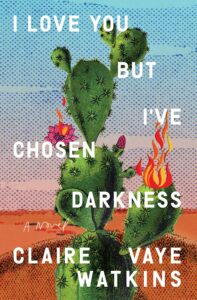
Claire Vaye Watkins, I Love You But I’ve Chosen Darkness
I read Claire Vaye Watkins’ I Love You But I’ve Chosen Darkness and really dug it. It has a blood and guts quality, visceral, that I found refreshing. Poetic jags of full tone and big mood. The letters in it from the author/narrator’s deceased mother (written when she was a teenager) took me a bit to get into, but later I decided they were essential, and that the author and the gone mother were collaborating on various uncrackable mysteries to do with women, chance, and Nevada, and making, together, new possibilities for the novel.
–Rachel Kushner, author of The Hard Crowd: Essays
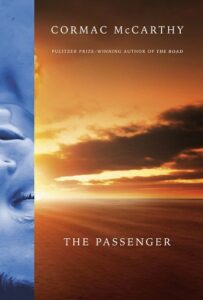
Cormac McCarthy, The Passenger
My fave book this year is The Passenger by Cormac McCarthy. A friend gave it to me as a gift and I read it slowly cause it’s been so long since his previous book. I really don’t know if it’s his best, a masterpiece, whathaveyou. Sometimes you love a writer that yes, is great—and he is—not because of just the greatness but something stranger bordering an invisible kinship. McCarthy writes what I love to read in a style that just floors me and yes it can be solemn but gosh, he starts with the image of a young woman hanging from a rope, dead, suicide, and I don’t want smart sentences and levity, I need this voice that says yes life is full of cruelty but here’s beauty.
–Mariana Enriquez, author of Our Share of Night, translated by Megan McDowell, published in the UK from Granta, forthcoming in the US from Hogarth in 2023
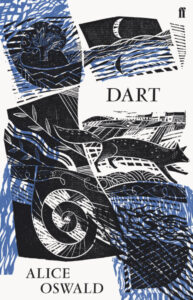
Alice Oswald, Dart
I read Alice Oswald’s poem “Dart” out loud with a documentarian/documentarist friend a few weeks ago. It’s not only one of the most beautiful odes to a river—or is it also a lament?—but also possibly the most fascinating approach to the problem of narrating non-human entities. Oswald does not try to impersonate the river or create some kind of human-non-human persona. Instead, she gathers the language of people who live on and interact with the river, and with the fragments of that language she draws a potent and haunting sound-map of its course, from source to sea. The poem was written exactly 20 years ago, this year. I recommend reading it out loud before the end of 2022!
–Valeria Luiselli, author of Lost Children Archive

Maya Deren, Divine Horsemen: The Living Gods of Haiti
For many years now, I’ve had this growing suspicion that I know absolutely nothing. Or, to put it another way, I’m beginning to realize, in a profoundly different way, that there is an abyss of difference between accumulating information and knowing. The longer I live, the more I feel well-informed, but remarkably ignorant.
Lately, I have felt this most keenly in terms of literature. Jean Rhys, Katherine Mansfield, Camara Laye, Naguib Mafouz, Eduardo Galleano, Simone Schwartz-Bart, Robert Hayden, Bapsi Sidwha—did I ever really understand any of it? When I read Morrison’s Tar Baby, in awe, as a teenager, how could I have seen all that she was doing with that resplendent crossroad of language, the history of the novel, black interiority, and transatlantic desire, when I myself then—and still now—knew so little? To this end, I’ve been starting all over again—going back and re-readings books I thought I understood, 35 or even 40 years ago, even as I may have completed them 3 or 4 times. Now I understand, it’s utterly probable that I never really read them at all.
This year, one of those books is experimental filmmaker Maya Deren’s Divine Horsemen: The Living Gods of Haiti.
Honestly, I don’t know whether I will ever understand it. I only know the writing and rigor are stunning. And it reminds me of a time when the attention to language, to the sentence, was normative and serious, not a rare literary skill. Word by word, sentence by sentence—less she allow her reader’s mind to go astray or be under-informed—Deren’s early and now canonical ethnography regarding the Haitian pantheon, cosmology, and theological rituals, is still—almost 75 years later—a deep existential excavation regarding the intimacy shared between gods and devotees. I’m still lost in her genius—her aesthetic and intellectual posture—and grateful to be so.
–Robin Coste Lewis, author of To The Realization of Perfect Helplessness

Percival Everett, Telephone
Telephone by Percival Everett turned me onto a writer that I know is going to rock my world. Effervescent, anarchic and seemingly effortless you cannot predict where Telephone will take you. Percival’s easy humor masks the high risk storytelling and emotional depth of his writing. I look forward to whizzing through the rest of his oeuvre, next up is The Trees.
–Nadifa Mohamed, author of The Fortune Men
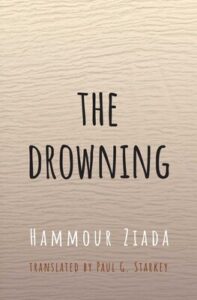
Hammour Ziada, The Drowning
A couple of years ago, Sudan had its first Oscar nomination with You Will Die at Twenty based on a short story by Hammour Ziada. The film, beautifully shot in North Sudan with stunning footage of the Nile, tells the story of a baby boy who is prophesied, by a local mystic, to die at the age of twenty and how this death sentence looms over his youth.The film ends without us knowing whether the prophecy has been fulfilled because that was never the point of the story. Hammour Ziada’s latest novel, The Drowning, does something similar.
It opens dramatically with the appearance of the drowned body of a woman at a village near the shores of the Nile. Who is she? Why was she killed? Neither of these questions are ever answered and instead we are plunged into the life of the villagers, their conflicts, histories, and relationships. This is a gripping, visceral novel, written with extraordinary energy. When I finished reading it, I felt as if a storm had ended and I was left strangely with glimpse of the drowned woman and an understanding of why she died, like a scene illuminated in a flash of lightening.
–Leila Aboulela, author of River Spirit, forthcoming in ’23 from Grove Press.
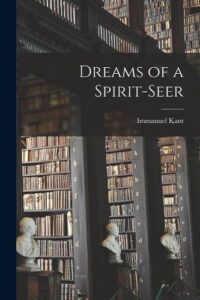
Immanuel Kant, Dreams of a Spirit-Seer
Of the many strong feelings we experience throughout our lives, the desire to see a loved one who has died must be among the strongest. I wanted to know what Kant thought about that possibility, so I read Dreams of a Spirit-Seer. Critiquing Swedenborg’s ideas, Kant thoroughly rejects any notion of the spirit world, and yet in his writing, there are many moments that I found profoundly affecting: moments characterized by what seems like hopelessness, moments in which Kant’s thoroughness reveals his own deep desires.
–Mieko Kawakami, author of All the Lovers in the Night, translated by Sam Bett and David Boyd
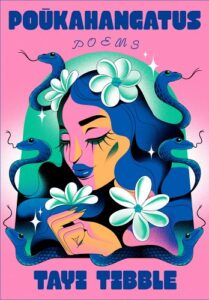
Tayi Tibble, Poūkahangatus
This summer while camping on the Oregon Coast I read Tayi Tibble’s Poūkahangatus in one sitting. It broke me open. In it I felt the pull of the ocean. I felt at home in the pages as a Native woman. These poems cut to the bone and demand that you not shy away from the blood, but rather look closely into the generations of story you’ll find there. There is a fierce femininity in these poems, as she examines lineage, history, and the importance of representation. This book is beautiful and unapologetically indigenous, and by far my favorite book of 2022.
–Sasha taqwšəblu LaPointe, author of Rose Quartz, forthcoming from Milkweed in 2023
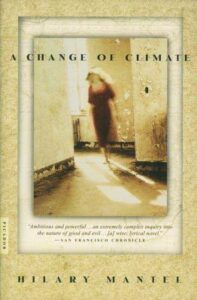
Hilary Mantel, A Change of Climate
Despite all things imperfect, 2022 has been a good reading year for me, both with other readers and by myself. I began the year by hosting a group reading of Moby-Dick with A Public Space, which took 30 days, and I’m ending the year with a group reading of Villette in 31 days. The group readings under #APStogether have continued to be an anchor for many readers around the world.
My most favorite discovery this year is an older title by Hilary Mantel, A Change of Climate, which feels to me is unfairly overshadowed by her later work, especially the Wolf Hall trilogy. At the center of the novel are an English couple, whose missionary past in Botswana and present life back in England compress decades of domestic and international dramas. The novel tackles many shades of evilness and goodness, none of which fit neatly into any ideology, all of which challenge ready-made and widely accepted narratives. It’s not a comforting or enchanting novel; rather, written out of a dire kind of clear-eyedness, the novel doesn’t leave any space for wishful thinking and makes for an unforgettable reading experience.
–Yiyun Li, the author of The Book of Goose

Kang Hwagil, A Good Person
Ever since I read A Good Person, by Kang Hwagil (Japanese edition translated from Korean) , I’ve been thinking about the air that I’ve inhaled so many times. There were often terrifying demons lurking in it, transparent and terrifying monsters generated by myself or by other people. I was astonished to find them present in the book in the form of language. I stood rooted to the spot like a child, turning the pages. It was a vivid reading experience, as if I had clearly witnessed the darkness of the mind through the light of language.
–Sayaka Murata, author of Life Ceremony: Stories, translated by Ginny Tapley Takemori
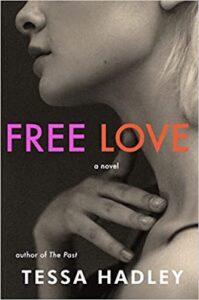
Tessa Hadley, Free Love
To hearten myself as we crawled out of the lockdowns I went back to Tessa Hadley’s novels and stories, for that clarity of soul she’s got, that womanly, unillusioned voice. Then, full of beans, I rushed out for her new novel, Free Love. I don’t know of anyone who can make characters the way she does. The text overflows with them, so fresh, without strain or laboured invention. Watching them emerge is like listening to a calm virtuoso playing, or a magpie quietly improvising its song—a deep, relaxed confidence, something in nature that’s meant to be.
–Helen Garner, author of How to End a Story: Diaries, 1995-1998
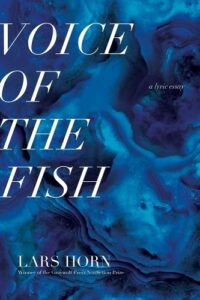
Lars Horn, Voice of the Fish
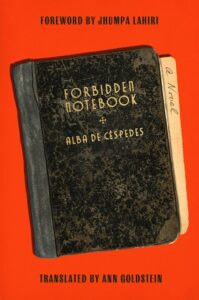
Alba de Cespedes, Quarderno Probito
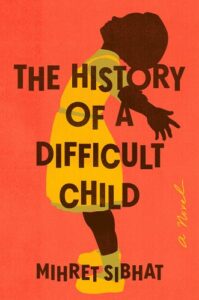
Mihret Sibhatu, The History of a Difficult Child
I don’t know if I have read anything this year as aching and beautiful as Lars Horn’s Voice of the Fish. The book asks large questions about identity, destiny, trauma, and art all while considering marine life and ancient texts. The world felt vast and filled with new possibilities when I got done. It moved me in the way that the best literature does.
I savored every page of Alba de Cespedes’ fantastic Quarderno Probito. Structured as a series of diary entries by a woman who has to hide the journal (and thus, her thoughts and feelings) from her husband and children, this revelatory book is a treatise on what privacy and imagination mean for a woman, especially as she juggles family, work, and aging. Seemingly small incidents in a day gather significance and grow ever more complicated, and the cumulative force is stunningly powerful. I heard this is being translated into English, I am excited for others in the US to read this.
This next book is a sneak peek into what will be available in 2023: Mihret Sibhatu’s debut novel, The History of a Difficult Child, is astonishing. Irreverent, insightful, and poignant and funny all at once. It is the story of a young girl growing up in Ethiopia as the revolution of 1974 sweeps in and changes life forever. But it’s also a meditation on religion, God, family, and identity, and personal, necessary rebellions. I find myself regularly thinking about this book after reading it. It’s that good, it’s that fearless.
–Maaza Mengiste, author of The Shadow King
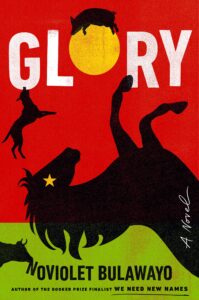
NoViolet Bulawayo, Glory
Glory, NoViolet Bulawayo’s brilliant animal satire of Zimbabwean politics and the downfall of a dictator, had me alternately crying tears of laughter and tears of despair.
–Aminatta Forna, author of The Window Seat: Notes from a Life in Motion
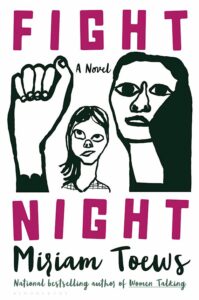
Miriam Toews, Fight Night

Emmanuel Carrère, Yoga
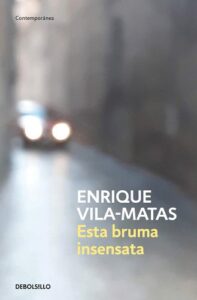
Enrique Vila-Matas, Esta Bruma Insensate
This year it became yet more apparent that the universe is heavily ironic. In the spirit of this further revelation I read a lot of heavily ironic writing: Miriam Toews’ hilarious and devastating Fight Night, Emmanuel Carrère’s Yoga (described by one reviewer as ‘not so much self-karaoke as self-cannibalism’) and Esta Bruma Insensate (That Mindless Mist) by the ever-brilliant Enrique Vila-Matas.
–Joanna Kavenna, author of Zed
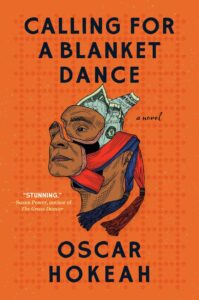
Oscar Hokeah, Calling For a Blanket Dance
The book I got the most excited about in 2022 is Oscar Hokeah’s Calling For a Blanket Dance. It’s such a vital and powerful novel, giving us a wide range of voices over decades of Native life in a new and real way, from a writer I will from now on read everything he writes. Lately it’s felt like I either don’t like a book enough to finish it or love it so much I read it again immediately after finishing it. Often I’ll read the book first then listen to the audiobook (I did this with Tess Gunty’s The Rabbit Hutch this year too), and the cast and performance of Calling For a Blanket Dance is so satisfyingly dynamic and nothing less than stunning. I could not more highly recommend this book.
–Tommy Orange, author of There, There
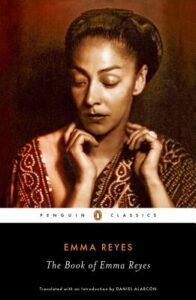
Emma Reyes, The Book of Emma Reyes
This year I read The Book of Emma Reyes, a harrowing memoir by the Colombian-born artist who was raised in a windowless room before being abandoned by her mother in the 1920s. Translated to English for the first time in 2017 by Daniel Alarcón, the memoir was originally written as letters over the course of thirty years. Reyes would go on to have a celebrated career as an artist and run in the same circles Diego Rivera, Frida Kahlo, and Gabriel Garcia Marquez. The book is astounding in its detail and remarkable that it even exists, given that Reyes was illiterate until the age of fifteen.
–Kali Fajardo-Anstine, author of Woman of Light

Kemi Alabi, Against Heaven
For months this year I found myself walking with and savoring the rich lyric and fugitive wildfire of Kemi Alabi’s rocket of a debut Against Heaven. The poems feel like offering and refusal all at once, alive with language that somehow matches the height of knowledge and depth of heart this poet conjures. In a year full of an overwhelming amount of incredible poetry, I was so happy to find my way to Alabi’s strikingly original and transformative work and join the fan club of their ignited, flabbergasted readers.
–Danez Smith, author of Homie

Dionne Brand, Ossuaries
Simply: Ossuaries by Dionne Brand. An epic in tercets, the momentum of ‘momentous times,’ through an underground concrete and material, coming together into an atmosphere, a poem bleak and clear-eyed of its times and histories and inevitabilities and complicities and yet. And yet—we must. Revolutionary. I don’t want to say much, but I am grateful to any year, even this one, with this book in it, which reads like a flare.
–Solmaz Sharif, author of Customs
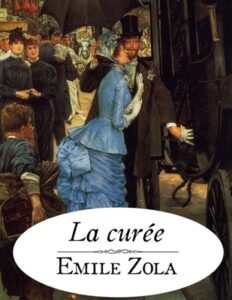
Émile Zola, La curée
A book that blew me away this year was Émile Zola’s La curée (The Quarry, often translated as The Kill). Part of the 20-volume Rougon-Macquart cycle, this withering 1871 novel wraps a sordid tale of rampant real estate speculation during the Haussmannian rebuilding of Paris around a tawdry, Phèdre-like story of a woman’s illicit lust for her husband’s son—all part of the author’s caustic indictment of morals and politics during the Second Empire. Really powerful writing with remarkable, almost cinematic set-pieces.
–Daniel Mendelsohn, author of Three Rings: A Tale of Exile, Narrative and Fate
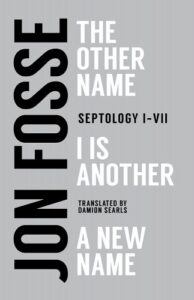
Jon Fosse, Septology
This year, I happened on a book so transcendent that not only is it my best book of the year 2022, it ties 2666 by Roberto Bolaño as my favorite book from the 21st century. I didn’t know what to expect when I bought Septology by Jon Fosse, translated with astonishing grace by Damion Searls; what I read was nothing less than a desperate prayer made radiant by sudden spikes of ecstatic beauty. Septology is almost impossible to describe; it is, officially, seven books, though it is written in one extremely long stream-of-consciousness sentence; the main character is resolutely himself but also fragmented into other selves, as well. It is ambitious. It is sui generis. It’s a book that suddenly expanded my understanding of what fiction can do.
–Lauren Groff, author of Matrix
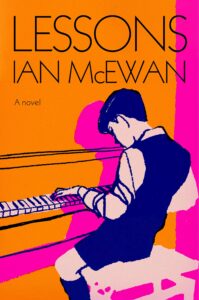
Ian McEwan, Lessons
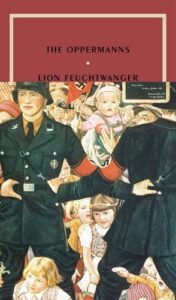
Lion Feuchtwanger, The Oppermanns
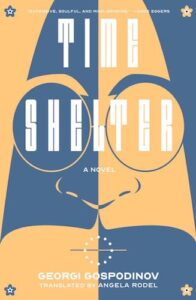
Georgi Gospodinov, Time Shelter
Perhaps because time in the pandemic was like a fun mirror, alternately stretching and shrinking, it has much been on my readerly mind this year—with Lessons, Ian McEwan’s sprawling and vivid novel of the last seventy years, as well as the re-issue of Lion Feuchtwanger’s extraordinary 1933 novel The Oppermanns, with an introduction by Joshua Cohen. If you’ve wondered what it was like to be in Berlin in the early 1930s, this novel, about a prosperous Jewish family, will take you there: it feels as urgent today as 90 years ago.
This year’s most delightful (yet deeply sobering) meditation on time is Time Shelter, by the brilliant Bulgarian novelist Georgi Gospodinov: the narrator and his elusive doppelgänger/projection Gaustine create across Europe a series of Alzheimer’s clinics in which patients are surrounded by their meticulously recreated pasts. But what will happen when this intense nostalgia seeps out of the clinics and into society, and people turn away from the uncertain future in thrall, instead, to a secondhand future of the past?
–Claire Messud, author of The Last Life
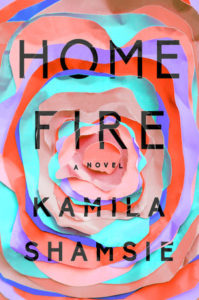
Kamila Shamsie, Home Fire
I was truly impressed by Kamila Shamsie’s Home Fire, which I read for the first time this year. Such a powerful and compelling exploration of Muslim life and identity in the west. So refreshing to read a novel that takes on current political issues without reducing issues or characters to clichés. The novel does the opposite: it deepens, expands, moves, with all the power of the original Greek tragedy, Antigone, that inspired it.
–Fatin Abbas, author of Ghost Season: A Novel, forthcoming in 2023 from W.W. Norton
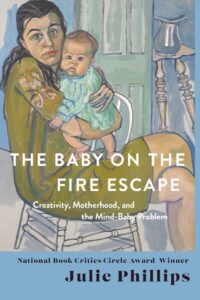
Julie Phillips, The Baby on the Fire Escape
The arresting title of Julie Phillips’ The Baby on the Fire Escape derives from her in-laws’ claim of painter Alice Neel that she had once left her baby on the fire escape of her New York apartment while trying to finish a painting. No Pollyanna pep talks here for aspiring artists and writers who might also want to be mothers, just a fascinating battery of inconvenient but invigorating truths about creativity and motherhood. Frank, thoughtfully nuanced accounts of female artists and writers draw on the lives of Audre Lorde, Louise Bourgeois, Doris Lessing, Faith Ringgold and Angela Carter among a host of starry others.
–Helen Simpson, author of Cockfosters: Stories
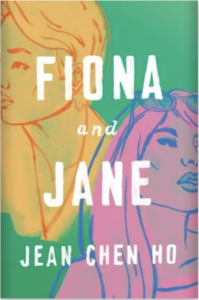
Jean Chen Ho, Fiona and Jane
Whenever I start to get tired and dusty, I turn to short stories about being young. This year the collection I loved most in those moments was Fiona and Jane by Jean Chen Ho. Each story feels like a confession, about something excruciating and exciting that happened to your best friend. I felt nostalgic and mortified from one paragraph to the next. It reminds me of walking home, shivering after drinks with friends, so relieved to be able to go home, but so happy to have gone somewhere.
–Xuan Juliana Wang, author of Home Remedies: Stories
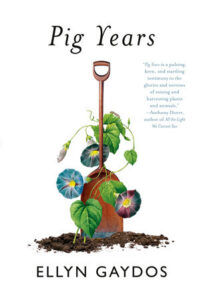
Ellyn Gaydos, Pig Years
In the swirling milieu of fantastic lies and chronic, casual violence that is currently the Republican Party, we crave dirt, honesty, reality: things we can touch, taste, scent, see, smell. In the spirit of John Berger and Melanie Viets, Ellyn Gaydos’ Pig Years is a tale of community, work ethic, socioeconomic inequity, and the stunning beauty and brevity of life.
–Rick Bass, author of For a Little While: New & Selected Stories
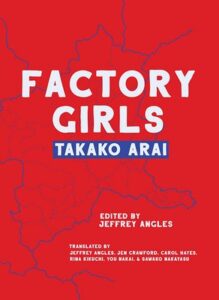
Takako Arai, Factory Girls
Set in a silk weaving factory in rural Japan, inspired by the one where Takako Arai spent much of her childhood, Factory Girls attends to the closely-knit lives of women workers. It’s a world of dreams and machines, danger and desire, folklore and fact, capitalism and climate change, nurturing and violence. This is Arai’s third book of poetry but the first that’s been translated into English. Six translators collaborated to bring this book to anglophone readers.
–Tess Gunty, author of The Rabbit Hutch
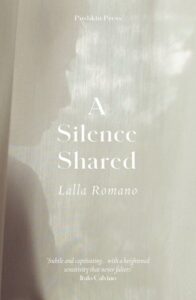
Lalla Romano, A Silence Shared
I completely disappeared into Free Love, Tessa Hadley’s new novel about a woman’s political and social transformation, and an English world that no longer quite exists. It’s compelling in its narrative, great-hearted in its generosity, and clear-sightedly unsentimental—ultimately, it shows that love, even if freeing, is never free, that someone will always have to go on paying the price. We had a very hot July over here, and I spent it in the company of Lalla Romano’s A Silence Shared, an Italian classic translated into English for the first time. Reading this beguiling book was not unlike watching light and shadow complicate the surface of a still, deep pool of summer water. Hats off to Brian Robert Moore for the stunning translation.
–Sunjeev Sahota, author of China Room
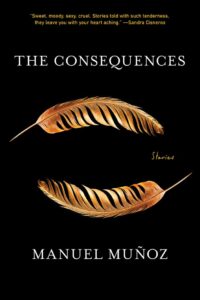
Manuel Muñoz, The Consequences

Roxanne Dunbar-Oritz, Not a Nation of Immigrants
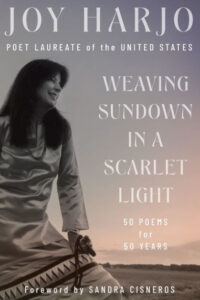
Joy Harjo, Weaving Sundown in a Scarlet Light
I truly adore Manuel Muñoz’s The Consequences; this book makes me envious because the writing is gorgeous, but so is the heart that collected these stories. Great spirit work done here.
My other favorite is Not a Nation of Immigrants, by Roxanne Dunbar-Oritz, which has me looking at ways I can decolonize the colonial town I live in.
Yet another is Joy Harjo’s newest poetry book Weaving Sundown in a Scarlet Light, because it’s a history of her life as a poet visionary through fifty years of her poems and as of this year I have personally admired Joy forty-eight out of those fifty.
–Sandra Cisneros, author of Woman Without Shame
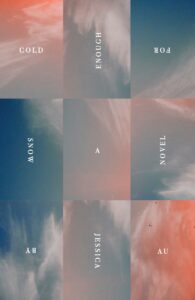
Jessica Au, Cold Enough for Snow
Cold Enough for Snow by Jessica Au is one of the most sublime novels I’ve ever read. From the first sentence, you see the author’s insistence on subtlety pay off. Its themes are familiar, but the way Jessica handles those themes made me rethink assumptions I had about the rules of fiction. A delicate and beautifully written novel, I’ll be going back to it even after the year ends, time and time again.
–Camonghne Felix, author Dyscalculia: A Love Story of Epic Miscalculation
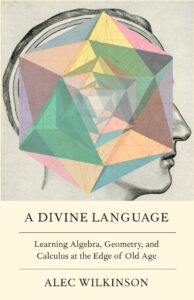
Alec Wilkinson, A Divine Language
There’s a breed of book that can serve as an antidote to what F. Scott Fitzgerald called “the 3 a.m. of the soul”, and the book this year that filled that time slot for me with wonder, awe, and beauty was Alec Wilkinson’s A Divine Language. It lives up to its title.
–Stuart Dybek, author of The Start of Something: The Selected Stories of Stuart Dybek
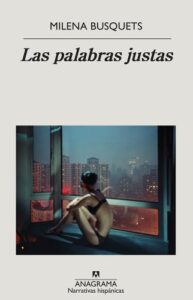
Milena Busquets, Las Palabras Justas
I loved Milena Busquets’ latest book Las Palabras Justas, which reads like a novel liberated from the novel form, the Spanish wilder little sister of Annie Ernaux; a fresh and fully-fleshed glimpse into the novel of ideas that is a woman’s mind.
–Pola Oloxoirac, author of Mona, translated by Adam Morris
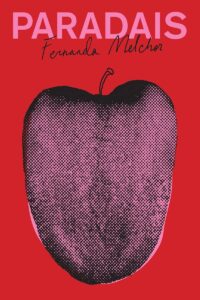
Fernanda Melchor, Paradais
Fernanda Melchor’s Paradais: There’s an element of Springsteen and Capote in Melchor’s novel about two boys—one cosseted, the other exposed—both messed up beyond their own shaky understanding of what claws at them. Melchor’s disturbing story of impending monstrosity is rooted in the real: grotesque income inequality, the inescapable miasma of the narco in Mexican society, youth already hollowed out by circumstances they were in no position to change.
But it’s also a searing fiction about the pain of living in a world absent of love and respect, where a smashed moral compass may be all there is to guide. The decaying of the soul that she evokes among the swamps and the gated community of her book is nearly tactile, and the novel’s reminder of the meanness of this world lands with an icy finality.
–Oscar Villalon is a writer and managing editor of Zyzzyva
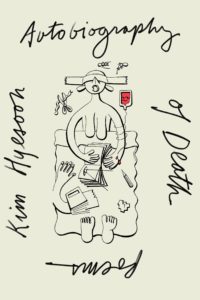
Kim Hyesoon, Autobiography of Death
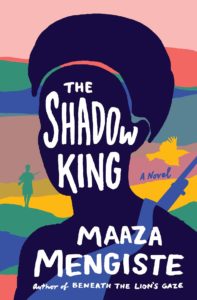
Maaza Mengiste, The Shadow King
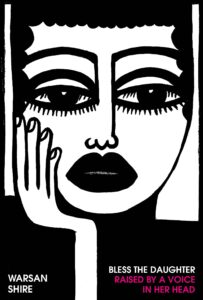
Warsan Shire, Blessed the Daughter Raised by a Voice in her Head
The books that marked my life in 2022:
Kim Hyesoon, Autobiography of Death: Death has never been this productive, this gory, this pig like, this seductive.
Maaza Mengiste, The Shadow King: History has never been told this intelligently, with such a striking resonance in the current political situation in Ethiopia.
Warsan Shire, Blessed the Daughter Raised by a Voice in her Head: Growing up in the a diaspora, in patriarchy, in the age of exploitation and resistance of black girlhood, has never been written this beautifully.
–Athena Farrokhzad, author of White Blight, translated by Jennifer Hayashida
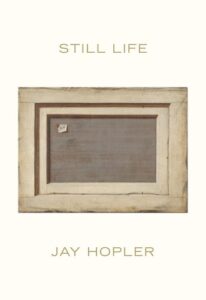
Jay Hopler, Still Life
I’ll be listening to Jay Hopler’s Still Life until my own life stills. Published by McSweeney’s just before Jay Hopler died this past June, Still Life is made of gut and wrench and humor and the desire to remain alive much longer than he knew he could, here on earth where he “loved his wife his wife his ocean was & his mountain range spent in blue gentian.” He’s jealous of us, the living. And this hastens me, when I look up from this book, toward being alive. What more could he do for a reader? He who “was born in mint-condition-in-original-packaging-action-figure-w/-kill-piggy-death-grip (collector’s edition)” and who “for a moment in rome he was: Jay Hopler.”
–Katie Ford, author of If You Have to Go: Poems
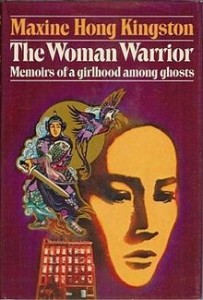
Maxine Hong Kingston, The Woman Warrior
Reading The Woman Warrior in 1975 was like the loudest thunderclap with the most blinding light, and flying through its charged air was the voice of Maxine Hong Kingston—history, lore, twisty wit, hallucination, the simple past of a Chinese immigrant family living in California. “A memoir of a girlhood among ghosts” read the subtitle—no memoirs to speak of then, so the word vibrated in a new way. I have always considered The Woman Warrior the book that wrenched the S from the dusty memoirs of (mostly) old men to crack open the genre that has become great in our time and claim for literature what hides within discretion or behind fear.
Reading about Kingston’s white tigers and no name women now, I felt again its swooping magic—a singular blend of story and reflection, imagination and dream, spectacle and myth bent into the shape of a telescope but also a kaleidoscope. Nearly 50 years on, along with other works by Kingston, it’s new from Library of America, its first volume by an Asian writer.
–Honor Moore, author of Our Revolution: A Mother and Daughter at Midcentury
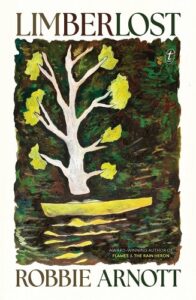
Robbie Arnott, Limberlost
For all sorts of reasons, 2022 had so far, for me, been a tough year for reading. Then in June, Atlantic sent an ARC of Robbie Arnott’s Limberlost.
I did what we do. Picked it up, opened it to the first page, scanned the opening sentences. Boom. I put it down. I already knew. Two things would happen. He’d fuck it up, and I wouldn’t forgive him; or it would be exceptional. This one, I told myself, I’ll read in one sitting. And I did, a Sunday. (24th July).
There’s a ‘thing’ in the book. To avoid spoilers, I’ll call it a thing. And there’s a passage on how ‘it became a marvelous thing, beautiful and impossible’ that ‘still filled the room, even though it was no longer in sight’. And so did Arnott’s story. For the first time in a very long while, I truly remembered why I need books.
–Cynan Jones, author of Stillicide

Shelley Wong, as she appears
as she appears by Shelley Wong
A shattered mirror scattered in a lush jungle
of desire & strobe-lights of oscillating selves — Wong
hands us an incredible, fierce & tender collection of lenses
where “ I scan the sand for signs of my shell.” Here,
a poetics of & for an emergent future.
–Juan Felipe Herrera, Poet Laureate of the United States, Emeritus
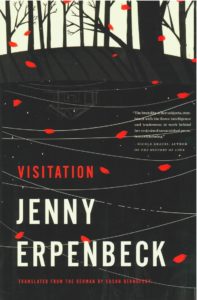
Jenny Erpenbeck, Visitation
I read Visitation by Jenny Erpenbeck twice—I gave the novel away more times. A novel about inhabiting place—a house on the bank of the Brandenburg Lake outside of Berlin—whose twelve different owners reflect Germany’s history from the nineteenth century to the GDR. Visitation is not a political novel. It is a haunting poetic novel about the importance of place and the consequences of its loss as the two words that make up the original German title suggest: Heimsuchung (searching for home). I am going to read Visitation again.
–Lily Tuck, author of Heathcliff Redux: A Novella and Stories
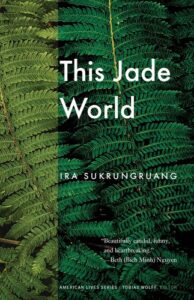
Ira Sukrungruang, This Jade World
I really enjoyed Ira Sukrungruang’s This Jade World, a new collection of personal essays about the end of his long marriage and his discovery in midlife of strangers and their strange beds, and a new sense of self, in the process. It’s also about reconnecting to your body after loss, finding your way past damaging stereotypes around Asian masculinity, and letting go of what you thought you needed to find what you might next need, as it were. And in the way of the best writing it is also about so much more.
–Alexander Chee, author of How to Write an Autobiographical Novel: Essays
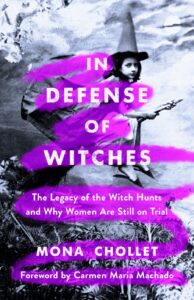
Mona Chollet, In Defense of Witches
I think In Defense of Witches by Mona Chollet (translated by Sophie R. Lewis) was the first book I read in 2022, and it started off my year in a lovely mood. Chollet is a Swiss intellectual who writes in a breezy, sophisticated, page-turning way that has made her very well-known in France. I always feel as though I’m in a petit Parisian café when I read her books. She discusses the attributes which once led to women being accused of witchcraft, and then links them to ways in which women are still hounded today. It’s a fun read because you can’t help but identify with the witches she describes, and as you read it you declare, Yes let me get old and cantankerous and outspoken, these are modern times, after all.
–Heather O’Neill, author of When We Lost Our Heads
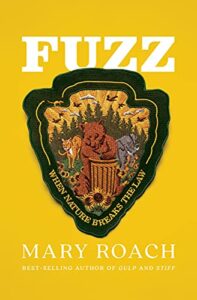
Mary Roach, Fuzz: When Nature Breaks the Law
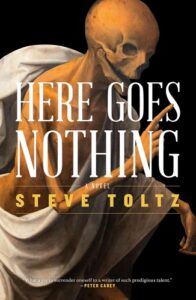
Steve Toltz, Here Goes Nothing
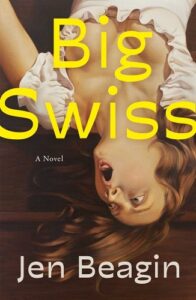
Jen Beagin, Big Swiss
As a practicing animal fact enthusiast who tries to commit one small crime everyday, I took tremendous pleasure in Mary Roach’s Fuzz: When Nature Breaks the Law—an unpretentious, hilarious, informative accounting of animal “crimes” and the forensics involved in solving them. If fiction’s your thing, look no further than Steve Toltz’ latest Here Goes Nothing—a dark and raucously funny novel about a dude murdered by a man in love with his pregnant wife, narrated from an afterlife as equally confounding as, well, life. It’s rad, and you should read it.
I also just finished an ARC of Jen Beagin’s third offering, Big Swiss, out in February. It centers around a sex therapist’s transcriptionist who falls in love with a client while listening to her sessions. Yes and YES!
–Matt Sumell, author of Making Nice: Stories

Olivia Laing, Everybody
This year I had an accident and broke my knee in a bad way. I was stuck inside a very rigid body for a long time, grappling with variations of pain, struggling with inner voices that oscillated from “I can do this” to “I will never heal.” Sometime along the way an editor friend recommended Olivia Laing’s Everybody to me and I was transfixed. I had difficulty focusing at the time and couldn’t manage to get to the bottom of anything, but this book leaped out demanding to be considered in every detail.
It was like an oracle, speaking directly to everything I was going through. Susan Sontag, Kathy Acker, Ana Mendieta, Nina Simone, Malcolm X. To read about their bodies, political, physical, artistic, free, while confined inside a broken one, felt like a small salvation. I think it was possibly a deeper and faster cure than the five hours of physical therapy I was putting myself through at the time.
–Chiara Barzini, author of Things That Happened Before the Earthquake
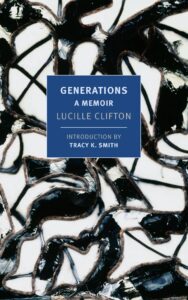
Lucille Clifton, Generations
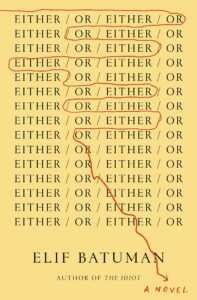
Elif Batuman, Either/Or
Last summer I read the poet Lucille Clifton’s Generations, a wonderfully looping, lyric memoir that is at once the story of her father’s death, a family tree and a family pantheon, and an excavation, really, of her family’s lineage as far back as it can be traced: to the first ancestor forced onto a ship and into enslavement in the U.S.A. This book incited the reaction only the best of books do: I wanted to hijack every conversation to talk about the book and assign it to all my students (which I did this past semester).
A few months later, I had a baby and was desperate for an intellectual romp—a book that required something substantial of my brain, but that moved swiftly enough to hold my quaky postpartum attention. I found it in Elif Batuman’s Either/Or (it got extra points for also being hilarious—a quality the postpartum period sorely lacks). I’ll be forever grateful to both of these books.
–Lauren Markham, author of The Far Away Brothers: Two Young Migrants and the Making of an American Life
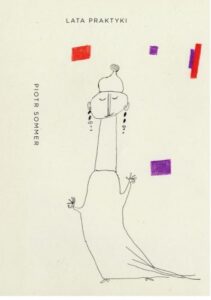
Piotr Sommer, Lata praktyki
Near the end of my first (and last) pregnancy, my vision declined to the point that I could no longer read books. Then my twins were born, and I recovered slowly, and for a couple of months, not being able to read didn’t seem to matter so much. Finally one morning the babies went to sleep, and I put on my mail-order glasses and read in one sitting the new book of poems by Piotr Sommer called Lata praktyki, which in English means Years of Practice.
Piotr Sommer is an icon in Poland, partly because he is that country’s greatest living poet, and partly because for nearly three decades he edited a revolutionary literary magazine called Literatura na świecie, or Literature in the World, that vastly expanded the purview of Polish and even Central European letters. Years of Practice, meanwhile, is a work of careful exuberance and casual, yet absolute, genius. It’s a collection about cities and families and the inexplicably meaningful nonsense of societies and social interactions. It’s about children and the irretrievable tomorrows of our childhoods. It’s about the joy of language, and it’s made up of the language of joy.
Sommer’s close relationship with English and the years he has dedicated to the art of literary translation have no doubt enhanced his appreciation of his native Polish, which I found contagious despite not having set foot in Poland in ages (or what feels like ages anyway). Lata praktyki isn’t translated yet, but Sommer’s translation, with Jennifer Grotz, of Jerzy Ficowski’s Everything I Don’t Know, also won this year’s PEN Award for Poetry in Translation and is readily available from World Poetry Books. Check it out if you can read and aren’t currently being screamed at.
–Jennifer Croft, writer and translator of The Books of Jacob by Olga Tokarczuk
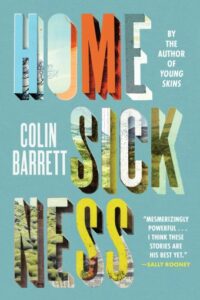
Colin Barrett, Homesickness
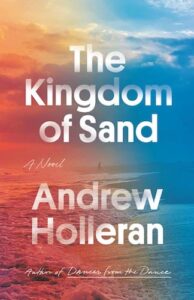
Andrew Holleran, The Kingdom of Sand
Nobody warned me how difficult reading other novels would be in the final stages of editing my debut novel. I failed to finish many good books. But there were two books that I read multiple times: the hilarious, upsetting Homesickness, by Colin Barrett and the extraordinarily beautiful The Kingdom of Sand, by Andrew Holleran. These two fucking miracles worked on me the way books used to when I was a child.”
–Kyle Dillon Hertz, author The Lookback Window, forthcoming in 2023 from Simon & Schuster
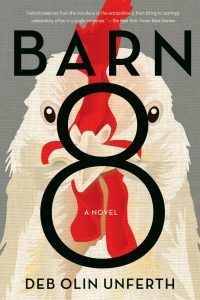
Deb Olin Unferth, Barn 8
In 2020, in anticipation of the end of the world, I bought a second refrigerator and placed several large orders from several small bookstores. This has created a backlog of books that has stretched all the way into 2022, when I finally chose Barn 8, by Deb Olin Unferth.
I’d passed it over a few times because of the chicken on the cover. Am I in the mood to read political stuff about chickens? Nah, maybe later. Then, cut to me, unexpectedly moved by a chicken making a promise.
–Shanteka Sigers is a writer whose work has appeared in Freeman’s, the Paris Review, Best American Short Stories and is a 2022 O. Henry Prize winner

Katherine Rundell, Super-Infinite, The Transformation of John Donne
In Super-Infinite, The Transformation of John Donne, Katherine Rundell’s prose makes us experience, with startling freshness, the familiar grounds of John Donne’s life. Her writing has both the devotional patience and alacrity of a conservator-restorer, that of someone who has spent many years up-close to Donne. As such, we believe her when she writes of an early portrait of Donne, that “his beauty deserved walk-on music, rock-and-roll lute: all architectural jawline and hooked eyebrows.” Shot through with a warm, generous spirit of loving attentiveness, Super-Infinite is the best companion to have when next rereading the work of this most mercurial of English poets.
–Ishion Hutchinson, author of House of Lords and Commons: Poems
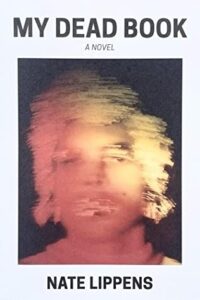
Nate Lippens, My Dead Book
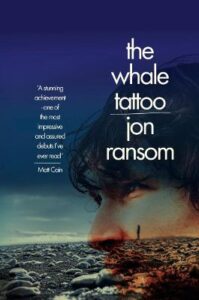
Jon Ransom, The Whale Tattoo

Fran Lock, White/Other
Three books from three dynamic indie presses that excited me this year were Nate Lippens’ beguiling My Dead Book, published in the UK by Pilot Press, The Whale Tattoo, the captivating novel by Jon Ransom from Muswell Press and the sublime White/Other by Fran Lock, from The 87 Press. Have I already read my book of 2023? Maybe—it’s going to be hard to top Kick the Latch by Kathryn Scanlan, coming early next year from Daunt.
–Andrew McMillan, co-editor (with Mary Jean Chan) of 100 Queer Poems: an Anthology
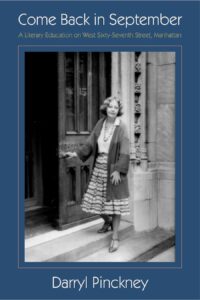
Darryl Pinckney, Come Back in September: A Literary Education on West Sixty-Seventh Street
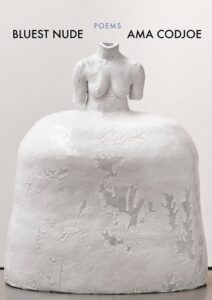
Ama Codjoe, Bluest Nude
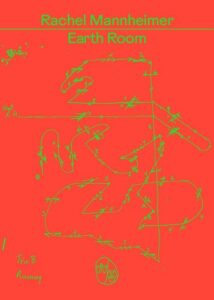
Rachel Mannheimer, Earth Room
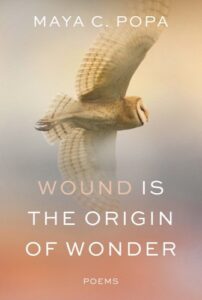
Maya C. Popa, Wound Is the Origin of Wonder
I’m caught up in Darryl Pinckney’s memoir of Elizabeth Hardwick, Come Back in September: A Literary Education on West Sixty-Seventh Street: it’s brilliantly told, and very funny, wit edged with pain (and social critique, character study, intellectual history, anecdote): “I said that sometimes life was so weird I was afraid to get up,” Pinckney recounts. “She said that life was often so strange to her she was too nervous to remain in bed.”
Life is strange, and made stranger and more arresting by these just-published collections of poems: Ama Codjoe’s debut, Bluest Nude; Rachel Mannheimer’s debut, Earth Room, and Maya C. Popa’s Wound Is the Origin of Wonder. Jay Hopler’s Still Life was published posthumously; an anticipatory elegy for the self— “my life’s a poem my death’s been writing for a long time”—it’s filled with the music of benediction and an earthy wild humor that doesn’t lighten but only deepens its beauty and sorrow.
–Catherine Barnett, author of Human Hours: Poems
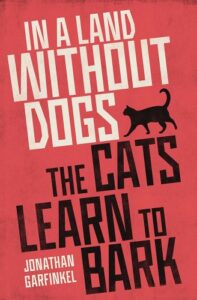
Jonathan Garfinkel, In a Land Without Dogs the Cats Learn to Bark
In a Land Without Dogs the Cats Learn to Bark by Jonathan Garfinkel. A clear-eyed, elucidating novel of the aftermath of the Soviet Union and the era’s devastating effects on lost, wandering lives. A great read.
–Rawi Hage, author of Stray Dogs and Other Stories
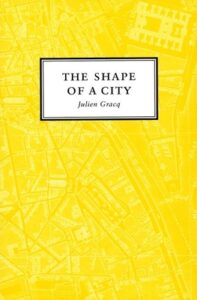
Julien Gracq, The Shape of a City
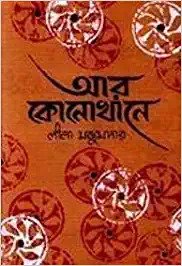
Leela Majumdar, Aar Konokhane
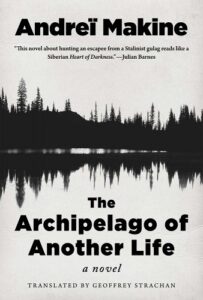
André Makine, The Archipelago of Another Life
I found Julien Gracq’s book quite by chance, as you might a friend with whom you sense an immediate affinity. The Shape of a City (La Forme d’une ville, translated by Ingeborg M. Kohn) had been left behind by some previous writer at a residency in France where I happened to be, and from its first line, “The shape of a city, as we all know, changes more rapidly than the heart of a mortal,” I was captivated by its blend of poetry, philosophy, history, observation and feeling.
Though it is about Nantes in the 1920s, it became my guide in a very literal way too: I followed in the footsteps of the author to eat at the ornate brasserie in Nantes, La Cigale, designed by a ceramicist called Émile Libaudière, and in Paris I went to the Musée Gustav Moreau, which Gracq mentioned as one of his favorites. It was as he describes, somewhat like a haunted mansion—room after room of the artist’s astonishing work, the rooms pinioned by an extraordinary spiral staircase.
My two other discoveries this year were the Bengali writer Leela Majumdar’s “Aar Konokhane” (Elsewhere) with radiant accounts of her wartime childhood in the Himalaya. And André Makine’s Archipelago of Another Life, about an insanely gripping journey across Stalin’s Siberia, simultaneously a fable, thriller, political statement and love story. It made me buy his other books in translation as soon as I could.
–Anuradha Roy, author of The Earthspinner
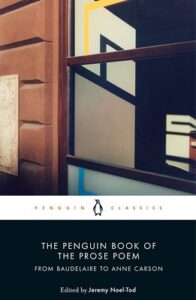
The Penguin Book of the Prose Poem, edited by Jeremy Noel-Tod
I found The Penguin Book of the Prose Poem expansive and provided some comfort that the indefinables of language, thought, and time remain so.
–Michael Salu is an artist and writer
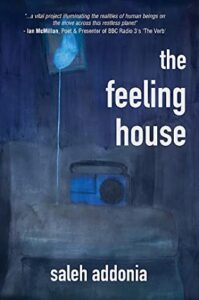
Saleh Addonia, The Feeling House
After learning Korean fifteen years ago, my linguistic relation to pronouns, especially ‘she’,’he’, ‘they’ and ‘we’, transformed radically. My literary relation to these pronouns, though, would only transform after reading “She’s a Country” in Saleh Addonia’s collection of short stories The Feeling House. Especially ‘she’ and ‘we’ are unforgettable.
–Adania Shibli, author of Minor Detail, translated by Elisabeth Jaquette

《歧路行》Qi Lu Xing/Taking the Branch Road by Bei Dao 北岛
In the East, the act of writing is easily distorted by power (or we could say politics). Bei Dao has consistently refused to be tamed; like Don Quixote, he wages battle against these forces alone. Taking the Branch Road is his longest work yet, and may be one of his final offerings. In this epic poem, Bei Dao writes “what departs is the ocean what returns is the foam/ what departs is the spring river what returns is the bare river bed/ what departs is the clear sky what returns is the arrow’s twang.” With such desolate yet undaunted lines, like a prophecy, he attempts to strike the gong of the human soul.
–A Yi, author of A Perfect Crime, translated by Anna Holmwood
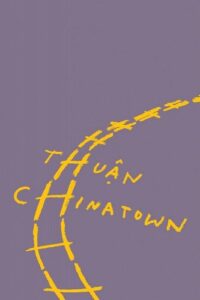
Thuân, Chinatown
I know I’m in for a good time whenever I open a book and see there are no paragraph breaks, and this was indeed the case with Chinatown. A dreamlike meandering through family history, displacement and language, in Nguyễn An Lý’s joyously fluid translation, Thuân’s unmoored narrator lets her mind roam even as her body remains trapped in so many different ways. Choosing to remain largely silent in her Parisian existence for fear of seeming “too Southeast Asian-y,” she can only be free in her thoughts. A feat of imagination.
–Jeremy Tiang is a writer and translator, his latest work is Xu Zechen’s Beijing Sprawl, co-translated with Eric Abramsen, forthcoming in 2023 from Two Lines
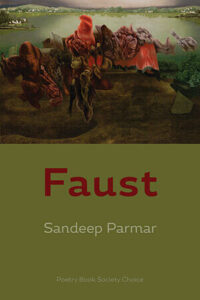
Sandeep Parmar, Faust
I read Sandeep Parmar’s new book Faust which led me to reread her two previous poetry collections. I see them as a triptych, a bold and inventive exploration of history, exile, memory, and racism in three volumes. For a striving Faust, Parmar casts a migrant who flees a post-colonial legacy of climate destruction for a life of eternal striving. The book begins with an invocation and is full of avant-garde spells as family history throws its chaotic waves onto the impenetrable walls of imperial narratives.
All three of Parmar’s books describe migrant experience in haunting ways. “We arrived with one steel pot, a bag of lentils and an onion”—this onion harvested in her first book, The Marble Orchard, is planted in Faust: “These potatoes, these onions, I have planted for centuries. And you bring me Englishman for a husband.” All three books are full of marriages that bring uprootings (her second book, Eidolon, recasts Helen of Troy, exiling her in the USA). In Faust, the mythological, feudal, patriarchal language of progeny used widely in the first two books erupts into fierce and heartbreaking poems of miscarriage.
I was greatly moved by how the book embodies striving in its form, how striving takes it beyond the constraints of the genre: along with poetry, Faust includes an essay on the poetry of miscarriage, along with an essay about Ulysses Syndrome—a stress-induced disorder observed in migrants. It’s full of voices—scholars, poets, dead and living, family members. There’s a metaphor Parmar extends through all three books: gemstones, speech, exile. Trace it as you read: it shines with intelligence and deep emotion.
–Valzhyna Mort, author of Music for the Dead and Resurrected
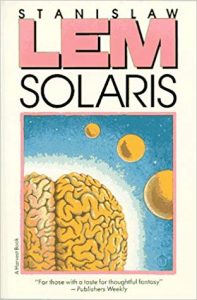
Stanislaw Lem, Solaris
My most memorable reading experience this year was the new and updated translation to Norwegian of Polish author Stanislaw Lem’s novel Solaris from 1961. A seminal work of sci-fi literature, it tells the story of psychologist Kelvin who travels to a space station orbiting the oceanic surface of the mysterious planet Solaris, which might be an entity in itself and which is able to materialize simulacra onboard the station.
This, as it turns out, is pretty bad news for both the crew and everyone who has devoted their lives to studying Solaristics in a futile attempt to understand it and learn to communicate it. They don’t write ‘em like this anymore.
–Johan Harstad, author of Red Handler, translated by David Smith, forthcoming from Open Letter in 2023
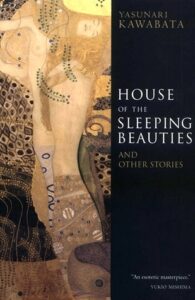
Yasunari Kawabata, House of the Sleeping Beauties and Other Stories
For centuries, writers have been expected to operate under the principle that less is more & to adhere to the power of subtlety. Though this may have produced great art, it might have also inversely led to a loss. This thinking was at the top of my mind when I read books considered by some to be the fruits of “perverted & weird imaginations.” One was House of the Sleeping Beauties and Other Stories, by Yasunari Kawabata, first published in 1961. With spare, beautiful prose, Kawabata boldly probes the boundaries to examine sexuality and human psychology and, in the process, produces a chilling work of art.
–Sulaiman Addonia, author of Silence is My Mother Tongue
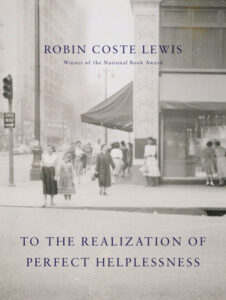
Robin Coste Lewis, To the Realization of Perfect Helplessness
This was a stellar year for books and reading, and there’s been much to love—but I was especially grateful to have Robin Coste Lewis’s exquisite and much anticipated To the Realization of Perfect Helplessness land on my desk just before year’s end. Part poetry collection, part photo album and archive, part documentary, and part, as Lewis puts it, “a film for the hands,” this sui generis book defies genre in documenting and celebrating intimate family history while simultaneously re-envisioning cultural narratives about race, exploration, terror, and migration. Lewis’s ingenious pairings of text and images illuminate the figures in the photographs while also exposing what’s aloft in the air surrounding them. This is an essential book, and one to treasure.
–Deborah Landau, author of Skeletons, forthcoming in 2023 from Copper Canyon
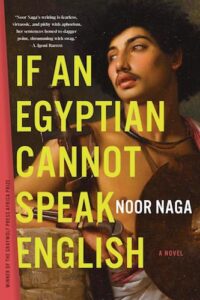
Noor Naga, If an Egyptian Cannot Speak English
Of all the books I read this year, no single work struck as great a blow against the idea of empire and privilege as If an Egyptian Cannot Speak English, by Noor Naga. The novel tells the story of an Egyptian-American woman “returning” to a country that was never truly hers, and of her dalliance in Cairo with a man left unmoored by the aftermath of the Arab Spring. Naga’s prose is wondrous, and her insights into the cruelties and absurdities of “globalization” are truly amazing.
–Héctor Tobar, author of Our Migrant Souls: A Meditation on Race and the Meanings and Myths of “Latino,” forthcoming in 2023 from MCD.
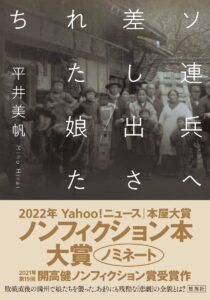
Miho Harai, The Daughters Offered to the Red Army
In the aftermath of Japan’s defeat in World War II, when the Soviet Red Army entered Japan-occupied Manchuria, girls and young women from the Kurokawa Settler Community were dispatched to provide sexual services to the Soviet soldiers in the hope of “protecting their community.” Miho Harai’s book The Daughters Offered to the Red Army reveals the immeasurable sacrifices that were forced upon these daughters, but even more appalling is the same community’s systematic and persistent silencing of the women’s experiences. Such practices are not limited to wartime. It’s always the weakest and the most virtuous who sustain the most harm. And similar “sacrifices” are still imposed all over the world.
–Kanako Nishi (translated by Allison Markin Powell), author of Dawn Breaks
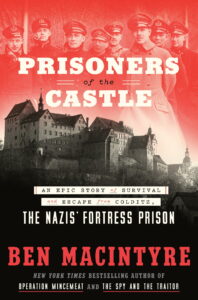
Ben Macintyre, Prisoners of the Castle
I finished reading what turned out to be my book of the year just in time to include it ahead of the deadline for this list: Ben Macintyre’s Prisoners of the Castle, his masterful history of Colditz, the special German fortress prison for POWS who had made a habit of trying to escape from other camps. It’s absurdly readable (and at times just absurd) as well as being informative, hilarious and deeply moving. A distinctly British myth is dismantled and in its stead something nuanced, more humanly engaging—and no less heroic—emerges. What with the BBC adaptation of his earlier Rogue Heroes, about the formation of the SAS, Macintyre is clearly having his moment—deservedly.
–Geoff Dyer, author of The Last Days of Roger Federer: And Other Endings
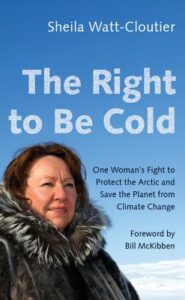
Sheila Watt-Cloutier, The Right to Be Cold
In anticipation of a research trip to the Arctic this summer, I read and learned a lot from Sheila Watt-Cloutier’s environmental memoir, The Right to Be Cold. As an Inuk woman who has survived profound degradation of both traditional Inuit culture and the Arctic landscape in the span of her lifetime, she writes with particular insight about climate change as a human rights issue that links all of us who live on the planet. I felt inspired by her rise from humble beginnings in Kuujjuaq, Quebec—where she was raised by a single mom and grandma, traveling by dog team in an ice-based hunting culture—to become a decorated environmental activist.
–Emily Raboteau, author of Searching for Zion
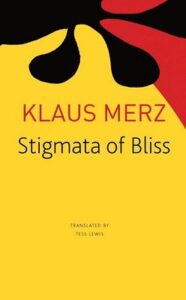
Klaus Merz, Stigmata of Bliss
Stigmata of Bliss is composed of three self-contained but interrelated novellas—Jacob Asleep, A Man’s Fate, and The Argentine—grounded in the Swiss canton of Aargau but often roving far beyond its boarders. As a tryptic, they could be considered as an archipelago; the unseen, unwritten expanses between as consequential as plate tectonics.
In each, the narrative takes the mode of a call and response, casting back and forth across a lifetime, or several, with all the restive indelibility of dream or deep memory. Merz doesn’t shy away from wonder (though he doesn’t hold it to ransom, either). Throughout, there are images and phrases that knocked my breath out with the same force as certain vertiginous mountain ranges: “Sometimes he wishes his children would grow up inside his ribcage—and make it expand.”
–Josephine Rowe, author of Here Until August: Stories
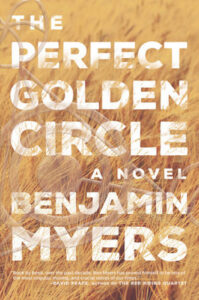
Benjamin Myers, The Perfect Golden Circle
I loved The Perfect Golden Circle by Benjamin Myers. The story of two social misfits who work together to design and make increasingly gloriously intricate crop circles over one summer in the south of England simply because they love the countryside and strive to dedicate themselves to adding to the sum of sheer, pointless, transient beauty in the world.
–Celia Hawkeworth, translator of Battle Songs, by Daša Drndic, forthcoming in 2023 from New Directions
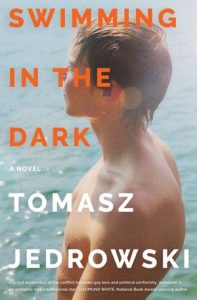
Tomasz Jedrowski, Swimming in the Dark
One of the best books I’ve read this year is Swimming in the Dark by Tomasz Jedrowski. It’s a quietly devastating portrayal of queer love set in the final years of the Polish People’s Republic. The novel takes the form of a letter to a former lover with the tenderness and immediacy of each unrequited “you” without ever slipping into sentimentality. Ludwik and Janusz meet at an agricultural work camp and spend several weeks together camping in the countryside.
However, their return to Warsaw burdens their bond with secrecy, fear and tough decisions to be made. I loved the gentle pace of Jedrowski’s lyrical prose with which he manages to interweave the personal with the political, showing their innate interdependence. Through a painful process of both learning and unlearning, Ludwik manages to shed his deep-rooted shame and stay true to that inner voice which, under layers and layers of censorship, still whispers that a better world is possible.
–Lana Bastašić, author of Catch the Rabbit
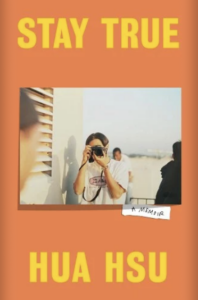
Hua Hsu, Stay True
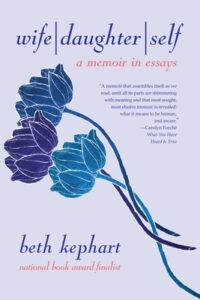
Beth Kephart, Wife/Daughter/Self
It seemed an unlikely book for me when my friend insisted I give it a try (I recognized about 10 percent of the songs/bands he wrote about), but Hua Hsu’s Stay True is a memoir that will ring in me for a long time. Its precision, its ease, its embrace of contradictions. Mostly I admire how much credit Hsu gives his readers. He doesn’t over-tend to us, or lean us into any particular emotional state. I got to feel what I felt as I went along, and it made me connect deeply to Hsu’s story and the people in it.
The other book that swept me away this year is Beth Kephart’s Wife/Daughter/Self, with her gentle exploration of those three states of being. Kephart’s images are often breathtaking—her gift.
–Debra Gwartney, author of I Am a Stranger Here Myself
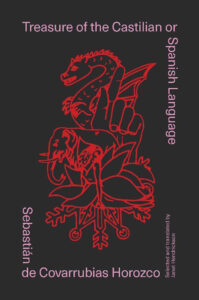
Sebastian de Covarrubias’s Horozco, Treasure of the Castilian or Spanish Language
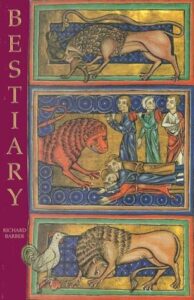
Richard Barber, Bestiary: Being an English Version of the Bodleian Library, Oxford, MS Bodley 764
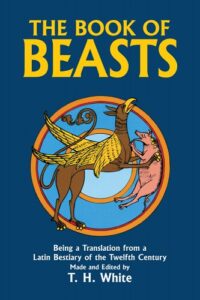
T. H. White, Book of Beasts
I once heard Anna Badkhen give the advice that you should make a point of buying books where you couldn’t, yet, pronounce the name of the author. There may be something, too, in gravitating to books you don’t entirely know how to categorize, and I remain in the grip of Treasure of the Castilian or Spanish Language, Janet Hendrickson’s poetic translation of an essay erasing most of its source text, Sebastian de Covarrubias Horozco’s encyclopedic dictionary first published in 1611. Her ambition and whimsy and chops in this project astonish and delight—which you’ll need to offset the frustration that this pamphlet almost immediately sold out and went out of print.
Speaking of forms strongly infatuated by etymology, I’ve tumbled down the rabbit hole of bestiaries this year—long enough to admit to the dominant pronunciation of the soft “best” as first syllable and not my native sense of the very satisfying hard “beast,” I have been charmed to keep company with Richard Barber’s Bestiary: Being an English Version of the Bodleian Library, Oxford, MS Bodley 764 with its sumptuous illuminations and fonts and big fat margins. What an object!
T. H. White’s Book of Beasts is another species of ambition, his reference photos from many bestiaries compiled and rendered as line drawings. Both translator’s notes stay with me, the later raising interesting points about the accuracy of texts famous for the fantastic, and the former pointing to how very familiar many of these creatures would have been to their readers. I will never get over the notion “All lion cubs are born dead,” and it doesn’t get better than the book as thoughtfully made physical thing and the writer/translator as generous guide.
–A. Kendra Greene, author of The Museum of Whales You Will Never See: And Other Excursions to Iceland’s Most Unusual Museums
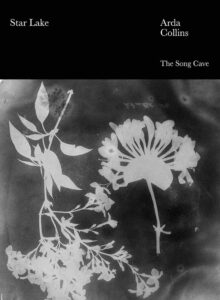
Arda Collins, Star Lake
Arda Collins’s new poems, Star Lake, enact a torque between immediacy and distance, between a visceral near—“An orange in the dark / is like lake air at night” and a resplendent far—“Down the boulevard … Versailles is everywhere.” Against the shadows of Armenian genocide and family loss, the speaker’s calls to “come in the window” or “come to time” are the ground for wondrous evocations.
–Arthur Sze, author of The Glass Constellation: New and Selected Poems
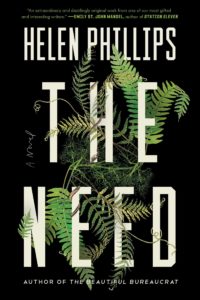
Helen Phillips, The Need
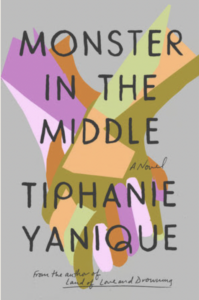
Tiphanie Yanique, Monster in the Middle
Though I read it in the early months of 2022, I’m still taken with the brutality and brilliance of Helen Phillips’ The Need—how slowly it dislocates us from one reality and allows a more sinister reality to take hold, one in which it’s hard to tell between protagonist and nemesis, truth and self-deception. To that top shelf of 2022 reads I’d also add Tiphanie Yanique’s Monster in the Middle. It’s a novel-in-stories that reinvents old forms—like the Hero’s Journey—to give us an intergenerational love story, or rather, a love story between two people, each of them trailed by ancestral heartaches.
–Tania James, author of Loot, forthcoming from Knopf in 2023
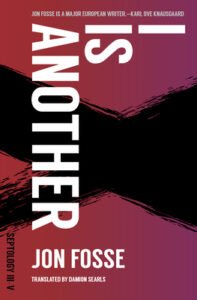
Jon Fosse, I is Another. Septology III-V
Jon Fosse’s I is Another. Septology III-V. I love this second volume in Fosses septology about the widowed painter Asle for its integrity and thematic quality, exploring art, time and the hazard of life. How the long, winding sentence, with its falling and raising sense of unease, the relatively small vocabulary, the use of doppelgänger and the dissolution of time creates a great stillness.
–Linnea Axelsson, author of Ædnan, translated by Saskia Vogel, forthcoming from Knopf in winter 2023
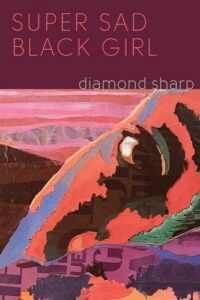
Diamond Sharp, Super Sad Black Girl
I can’t stop thinking about Super Sad Black Girl, the debut collection of poetry by Diamond Sharp. The book’ wrestles with lineage, illness, and endings in deceptively sparse lyrics that live in conversation with the legacies of Gwendolyn Brooks and Lorraine Hansberry, of Rekia Boyd and Sandra Bland, and of Claudia Rankine. “Black Lady Lazarus” mirrors Rankine’s devastating and ongoing list of Black men killed by police violence in its sequence of Black women killed by police violence: “Sandra & Korryn & Breonna & Atatiana & Aiyanna & […].” Sharp devises images of startling and terrible beauty (“I dream of leaving a sea of poppies on my bedroom floor”), confronts the inescapable nature of mental and emotional inheritance (“My illness is an heirloom.”), and obsesses over the relentless gnawing of depression and desperation by repeating single sentences over an entire page: “I’ve spent my whole life running from this birthright.” One of the bravest books of the year, and one that will stay with me for a long, long time.
–Diego Báez is the author of Yaguareté White, forthcoming from University of Arizona Press (2024)
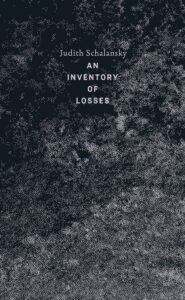
Judith Schalansky, An Inventory of Losses
Feeling both urgent and elusive, timely and unstuck from time, Judith Schalansky’s An Inventory of Losses knocked my socks off this year. Engaging our compulsion to gather and futilely preserve (sometimes only by rumination) things lost to our world—from an extinct species of tiger, to a Murnau film, to a fraught art installation, to a phantasmal island—the book also interrogates the innate structural inadequacies of such repositories—the incompleteness of any archive, of any Voyager Golden Record, and therefore of any stab at collective memory.
I adored navigating Schalansky’s blurring and blending of “fact” and “fiction,”—their necessary and intrinsic non-binariness; their co-existence in the stories we well ourselves about ourselves and the ornaments of our world, and about the looming entropy that’s ever contextualizing each. This is the stuff of dreaminess, but not exactly dream itself.
–Matthew Gavin Frank, author of Flight of the Diamond Smugglers: A Tale of Pigeons, Obsession, and Green Along Coastal South Africa
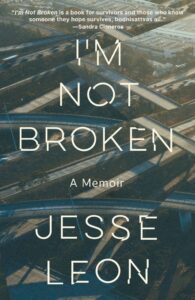
Jesse Leon, I’m Not Broken
I have to say that Jesse Leon’s memoir, I’m Not Broken, is a story that has stayed with me after I read it when it came out this summer. Leon writes about sexual abuse and addiction, violence, and prostitution, but also about the inner strength, courage, and resilience of a young man trying to not allow all these traumatic experiences to define who he is or keep him from fighting for his dreams. A truly inspiring story from a debut author.
–Reyna Grande, author of A Ballad of Love and Glory
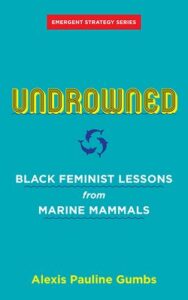
Alexis Pauline Gumbs, Undrowned
Undrowned is the best book I read this year and very possibly my favorite book ever. I keep re-reading it. I often read it in the bathtub. One time I accidentally dropped it in the water and now all the pages have waves in them, which feels even more right. Alexis deep dives into the world of marine mammals as an apprentice to their wisdom, and as an explorer of language and liberation. The text itself contains worthy lessons.
But it’s the poetry that sweeps you away. Alexis’s voice flows between scientific observation to intimate meditation. She writes like a body that belongs in the water. And, like a body bigger than an author, bigger than a book, bigger than a blue whale. Every time I read a passage from Undrowned I get a little more free. It makes me feel connected and grateful and wild and tender and alive, so alive, and so in love with living.
–Christy NaMee Eriksen is a Kundiman fellow working on her first book of poems
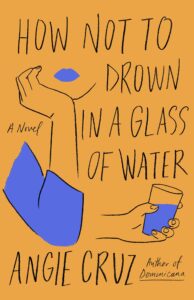
Angie Cruz, How Not to Drown in a Glass of Water
What a joy to immerse myself in this elegantly compact, impactful, and vibrant novel by the talented Angie Cruz. Cara Romero, our narrator, is an out-of-work Dominican woman in her fifties living in Washington Heights during the Great Recession. During twelve sessions with a city employee, a younger Dominican American woman, tasked with helping Cara find a job, Cruz engages with weighty issues of gentrification, poverty, globalization and its displacements, discrimination, bureaucratic cluelessness to the rich interior life of its petitioners with a touch so light, and a voice so pitch-perfect that the issues leave the world of abstraction and become palpable, penetrating, and deeply felt.
An added delight for the bilingual reader is the pitch-perfect narrative voice which so unapologetically embraces both English and Spanish, creating a back-and-forth playfulness and lyricism that surprise and delight. This novel is not just a favorite read of 2022 but it joins my shelf of all-time favorite novels. Doble Brava to Cara and to Cruz for this tour de force book.
Manuel Muñoz’s new short story collection, The Consequences, shows a mastery that’s hard to pin down. Set in California’s Central Valley, the stories depict the lives and souls of Mexican and Mexican-American men and women with an abiding tenderness and presence of heart which signals a moral imagination at work—but without a fingerprint of preachiness or polemics in the writing.
The stories are permeated with tenderness and an open-eyed clarity that make you feel you’ve touched bottom in the humanity of each of the characters. Manuel Muñoz is one of the best “quiet” storytellers out there. A wonder of a writer.
–Julia Alvarez, author of Afterlife
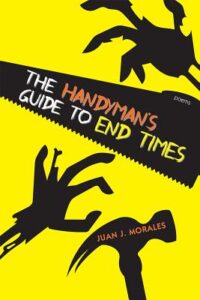
Juan Morales, The Handyman’s Guide to the End Times
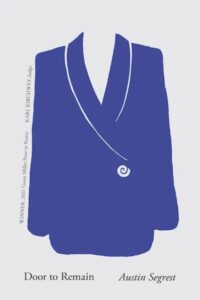
Austin Segrest, Door to Remain
Poets saw me through 2022. I loved Tayi Tibble’s Poūkahangatus, which explores the modern Maori experience with irresistible humor and daring. Juan Morales’ The Handyman’s Guide to the End Times comforted me at a time when I needed it, by radiating a kind of humble perseverance in the face of great loss. And finally I was moved by Austin Segrest’s Door to Remain, a clear-eyed elegy to a mother who died of anorexia, and a mediation on the limits (and limitlessness) of human love.
–Amanda Rea is a writer living in Denver
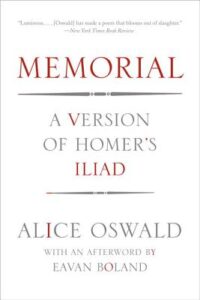
Alice Oswald, Memorial: A Version of Homer’s Iliad
This year I read Memorial by Alice Oswald in January, and in February there was a new war in Europe. I was shaken by Oswald’s reinvention of the Iliad, removing Achilles’ rage, leaving the “energeia” to speak, casting light at what is lost in war: the singularity of life. The repetition of the stanzas is merciless and powerful at the same time, and this is a work that rekindles humanity.
–Gunnhild Øyehaug, author of Evil Flowers: Stories, forthcoming in 2023 from Farrar, Straus & Giroux

Taeko Kono, trans. Lucy North, Toddler Hunting and Other Stories
Written by Taeko Kono in the 1960s, Toddler Hunting and Other Stories blow up any idea we may have of marriage, motherhood and femininity, like an empty can being kicked by someone with all their might. The most important Japanese author of her generation—she was only one year older than Yukio Mishima—wrote about unspeakable desires with such detachment and precision that the reader, instead of being shocked, feels a burning stupor. Overcome the astonishment the questions arrive. Why do we cause pain? Why do we crave pain? And what to do when pleasure meets pain? You have to read them little by little, like certain dangerous foods that only in small doses we are able to digest.
–Andrés Felipe Solano, author of Los días de la fiebre: Corea del Sur, el país que desafió al virus

Liu Xinwu, The Wedding Party
I read approximately a bazillion books (or at least, well over 200) as a judge for ALTA’s Best Translated Book in Prose Award, and one that I would recommend most highly is The Wedding Party, by Liu Xinwu and translated by Jeremy Tiang. On original publication in China it was made into a super popular TV miniseries and it is totally binge worthy—it’s rich with the atmosphere of Beijing in the 80’s, it’s hilarious, and Tiang’s translation absolutely sings. It immediately claimed a spot on my “favorites of all time” shelf and with its family warmth and drama, it’s actually perfect reading for the season.
–Annie Tucker, translator of Kitchen Curse: Stories, by Eka Kurniawan
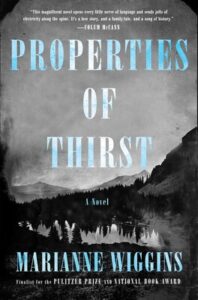
Marianne Wiggins, Properties of Thirst
“You can’t save what you don’t love.” So begins Marianne Wiggins’ lovesong, Properties of Thirst, published earlier this year. The truths become even more profound as the novel progresses. Set in the deteriorating moral landscape around World War Two, it’s funny and it’s tender and it’s smart and it’s humble, all the time prying open the territories of the heart.
–Colum McCann, author of Apeirogon

Luke Healy, The Con Artists
I’ve been reading more graphic novels lately, especially since I started translating them, and it’s opened up a whole new world for me. My favorite read this year has been Luke Healy’s The Con Artists, a funny, bleak, and whimsical tale of friendship between two childhood frenemies Frank and Giorgio. Snippets of Frank’s stand-up routine break up the spare writing and crisp minimalist lines, as Healy questions what is real and what is fiction in this age of social media. And the fact that it’s a comic (book) about a comic (comedian)—how perfect is that? I’ll be talking about the understated brilliance of this book for a long time.
–Janet Hong, writer and translator of Yeong-shin Ma’s Artist
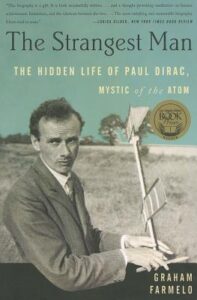
Graham Farmelo, The Strangest Man: The Hidden Life of Paul Dirac, Mystic of the Atom
I don’t want to talk about my favorite 2022 book right now because that just takes time away from the one I’m reading, Salmon Rushdie’s unputdownable Joseph Anton: A Memoir (“Joseph Anton” was Rushdie’s pseudonym during his years in hiding). Lucasta Miller’s Keats: A Brief Life in Nine Poems and One Epitaph kept me in shape this year, because I kept having to put it down and take a long walk to keep from crying. But overall, my 2022 fave is The Strangest Man: The Hidden Life of Paul Dirac, Mystic of the Atom by Graham Farmelo.
An intimate of Einstein, Heisenberg, Niels Bohr, and the other great physicists of the last century, Dirac helped discover quantum mechanics and predicted the existence of antimatter, for which he won the 1933 Nobel Prize. He really was the strangest man: he didn’t take care of himself, he was known for giving one-syllable replies or none at all to questions, and he often ate entire meals with others without saying a word. Fun fact: in his final years, Dirac taught at Florida State University, where I teach, and the several times my path crossed his, I involuntarily reached for my wallet to help someone who looked destitute before realizing that the man with missing teeth and a stained jacket was one of the towering figures of our time.
–David Kirby, author of Help Me, Information: Poems
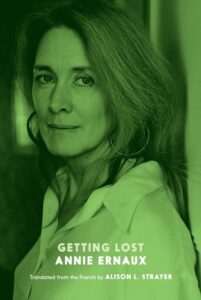
Annie Ernaux, Getting Lost
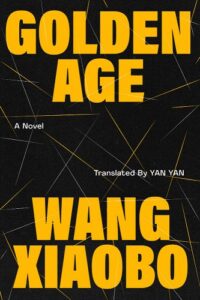
Wang Xiaobo, Golden Age
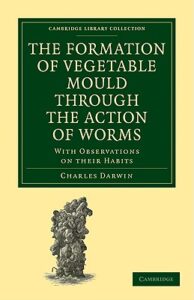
Charles Darwin, The Formation of Vegetable Mould Through the Action of Worms
This year has been more eventful than the last. I had finally felt a sense of hope in coming out of the pandemic but then Putin’s absurd and monstrous war in Ukraine dragged me back to despondency. I read more than the last year. One of the highlights is Annie Ernaux’s Getting Lost, translated by Alison L. Strayer. The incredible intensity transmitted in this piece is as powerful as her previous works such as Happening. I also read the English edition of Golden Age by the late Chinese writer Wang Xiaobo, excellently translated by Yan Yan.
At once hilarious and charged with serious political discourse, Golden Age is truly a tour de force. It demonstrates that Wang Xiaobo is amongst the most original writers in post-Mao China. Last but not the least, there is a book I have been meaning to read for years now but only got to last month—The Formation of Vegetable Mould Through the Action of Worms by Charles Darwin.
The first edition was published in 1881. I was amazed by the way Darwin described the earthworms’ life and physiology, so detailed and so attentive for such a ‘small book of little moment’ in his own words. It is even more incredible just to think that Darwin died a year after writing such a curious work.
–Xiaolu Guo, author of Radical, forthcoming in April 2023 from Chatto and September 2023 from Grove
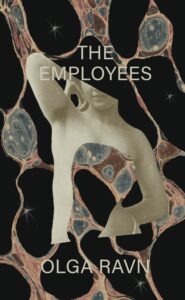
Olga Ravn, The Employees
Olga Ravn’s novel The Employees (translated by Martin Aitken) asks big questions about work, pleasure and pain, focusing on what we lose when we ignore that we have bodies. A homesick love letter to humanity, written from outer space.
–Sam Bett, translator of The Flowers of Buffoonery, by Osamu Dazai, forthcoming from New Directions in 2023
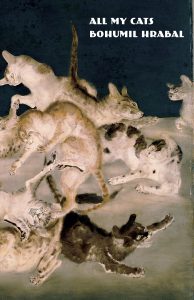
Bohumil Hrabal, All My Cats
I both loved and hated Bohumil Hrabal’s All My Cats, which is an intimate observational account of the author’s adoration, fascination, need, sense of overwhelmedness and then guilt at the growing family of cats he kept at his weekend country cottage east of Prague. I loved the book for its tenderness, and the affecting detail with which he captured life with his feline companions. And hated it for the fear he managed to inspire—in a very short and emotionally suspenseful narrative—of what might happen to his cats: Would they disappear, die, get sick, freeze in the winter? Would he drown the newborn litter that overwhelmed him? At times I closed the book shut to put-off reading what might have happened next.
–Yasmine El Rashidi, author of Chronicle of a Last Summer: A Novel of Egypt
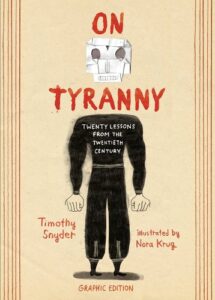
Timothy Snyder and Nora Krug, On Tyranny: Twenty Lessons from the Twentieth Century
I loved reading On Tyranny: Twenty Lessons from the Twentieth Century, by author Timothy Snyder and illustrator Nora Krug. The book was originally published in paperback in 2017, then re-published as an illustrated “graphic edition” by Ten Speed Press of Penguin Random House.
The book explores the mechanisms through which authoritarian regimes of both the political left and the political right rise up, and how they have been resisted. The book is equal parts chilling and inspiring, demonstrating as it does, how many of the brutal, misleading tactics of authoritarianism were deployed by a certain orange manbaby during his 2016-2020 presidency, and how civil society has again and again stood up to dictators and wannabe dictators.
One chapter explores the specialized language that authoritarians use to justify and normalize their extreme policies and violent actions. Another reminds us that “modern tyranny is terror management,” which is to say that authoritarians will exploit disasters, attacks, and terrible events to consolidate power. In one chapter, the authors focus on reality and the truth, and how we must urgently cling to and defend facts and reality, even as authoritarians try to flood the culture with lies, and warp and distort reality to suit their needs.
It is empowering to have an author connect the dots and help one see the whole constellation of interconnected authoritarian tactics, and also to know that people found ways to resist, subvert, and undo authoritarian regimes. My only regret is that I did not pick up this beautifully illustrated book in 2017, just as American authoritarianism was throwing me and so many others off balance as we wondered what it all meant, where it would stop, and how to stop it.
–Jaime Cortez, author of Gordo
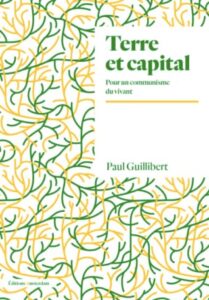
Paul Guillibert, Land and Capitalism: For a Communism of Living Beings
This past year I’ve felt the need to read philosophy again. I found Paul Guillibert’s book, which I hope to be translating soon under the title Land and Capitalism: For a Communism of Living Beings. The book articulates things that I have thought about but felt like I didn’t understand enough to express: how there are dead ends in communism/Marxism but that other possible currents exist; and how there are plenty of ecological movements yet they don’t make as large an impact as I would like. Guillibert explains these things and suggests a way to combine the two in a sort of eco-communism to address the future.
–Matt Reeck is a 2022 Guggenheim Fellow in translation. His most recent translation is Édouard Glissant’s Manifestos, translated with Betsy Wing.
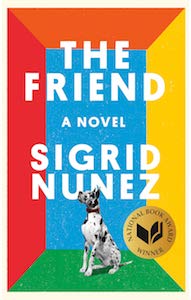
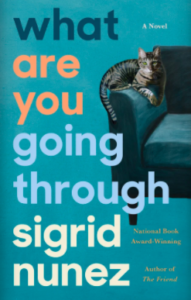
Sigrid Nunez, The Friend and What Are You Going Through
This year, everything slowly went back to normal in Paris, where I live, and paradoxically I found myself feeling a little bit lonely. Call it an afterglow of loneliness in the wake of the pandemic, which had kept us on our toes with its flurries of texts and emails and video meetings, and the general state of hypervigilance and stress it put us through. 2022 was more… muted. I felt a bit unmoored. I was happy to be reunited with friends and family, of course, but I hadn’t anticipated the effort it would take to try and pick up where we left off, and to make sense of each other’s often disjointed experiences.
And so I searched for a friendly voice to help me through the transition. Which is why I spent a tremendous amount of my reading time with Sigrid Nunez. I’ve now read all of her books, I think. The Friend and What Are You Going Through I’ve re-read. The narrative voice struck me as lovable, relatable. But the deep solace I found in those books is structural. Architectural.
At first, both seem digressive—the way a friendly conversation might feel—until you realize that everything falls perfectly into place. They’re so beautifully constructed, these books. Nothing is gratuitous, and so they provide a deep sense of meaning; in a period of doubt, isn’t that the greatest gift of all? To me, they’ve been delicate but enduring shelters. They’ve kept the wind and chaos out but let the light in. They were perfect for my 2022.
–Jakuta Alikavazovic, author of Night as it Falls, translated by Jeffrey Zuckerman
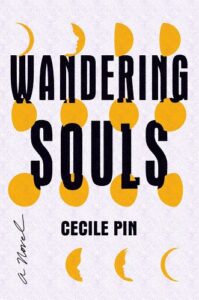
Cecile Pin, Wandering Souls
I was fortunate enough to have read an early copy of Cecile Pin’s debut, Wandering Souls, and what a stunning novel it is. It came to me at a time when I was having trouble finishing books, yet I blazed through it in a day. A poignant and important story following the life of a Vietnamese family in the UK, it is written with so much tenderness and sensibility. This novel comes out in March 2023 and it is a must-read.
–An Yu, author of Ghost Music

Tim Coursey, Driving Lessons
Tim Coursey’s Driving Lessons is a very dense read but here’s what you get: At some point (about now, it seems) the mechanisms of the world—societal, meteorological—fall apart. As ordinary life itself—into these moments, apprehensive human moments, insecurely related but meticulously rendered, no less clearly than the frequent breakings down of common, everyday machinery that you are given to understand with great precision in correct professional terms. Somehow Coursey has found the correct emotional terms for the end of the world.
–David Searcy, author of The Tiny Bee that Hovers at the Center of the World
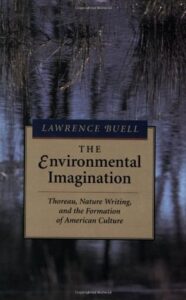
Lawrence Buell, The Environmental Imagination
The Environmental Imagination by Lawrence Buell has lit my own imagination as to what environmental storytelling can and cannot do, and his follow-up book, Writing for an Endangered World: Literature, Culture, and Environment in the U.S. and Beyond, travels along these same paths—that of examining not just environmental literature, but what “environment” means, its representation and conception, and how our current crisis is not just one of climate, but of our imaginations. While these have been out for some years (1996 and 2003), his ideas about rethinking environmental stories have repercussions that could last for hundreds, if not thousands of years.
–Kerri Arsenault, author of Mill Town
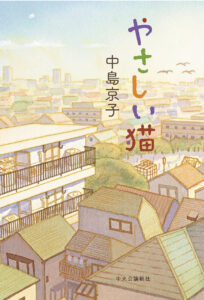
Kyoko Nakajima, Yasashii neko (The Kind-Hearted Cat)
A Japanese single mother falls in love with a Sri Lankan man and they marry, but their family is torn apart when he is thrown into an immigration detention center for overstaying his visa. Narrated by her teenage daughter, this compelling story gives a rare glimpse of the difficult conditions faced by immigrants who inadvertently fall through the cracks in society.
–Ginny Tapley Takemori, translator of She and Her Cat: Stories by Makoto Shinkai and Naruki Nagakawa
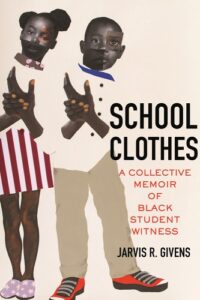
Jarvis Givens, School Clothes
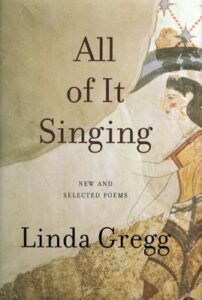
Linda Gregg, All of It Singing
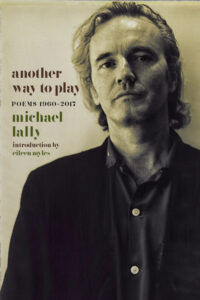
Michael Lally, Another Way to Play
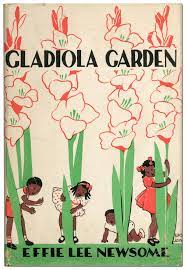
Effie Lee Newsome, Gladiola Garden: Poems of Outdoors and Indoors for Second Grade Readers
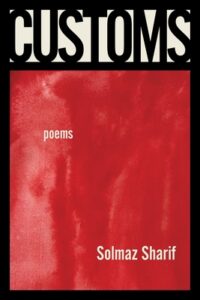
Solmaz Sharif, Customs
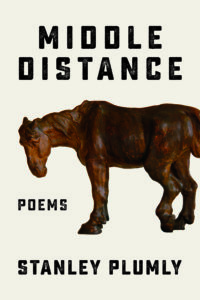
Stanley Plumly, Middle Distance
School Clothes by Jarvis Givens: a wonderful book on the history of black education, told with great care through the perspective of over 100 students who helped shape it. Various luminaries from throughout the black expressive tradition make appearances here (Angela Davis, William Sanders Scarborough, and Mary McCleod Bethune among others) and are placed within a much larger chorus of voices spanning back to the 18th century.
All of It Singing by Linda Gregg: one of the first poets that I share with any of my students interested in transferring our daily sense of astonishment, of unfettered awe, into language that others can enter. Gregg’s narration of our entanglement with the more-than-human world remains as timely as ever. I learn something new from these poems every time I read them.
Another Way to Play, Poems 1960-2017 by Michael Lally: I came across this book quite accidentally one day in Raven Used Books in Cambridge, and after reading more extensively online about Lally’s life and letters realized I had to go grab it before someone else did. The originality and range of the voices on display in this collection jarred me awake.
Gladiola Garden: Poems of Outdoors and Indoors for Second Grade Readers by Effie Lee Newsome: My colleague, the horticulturalist and public historian, Abra Lee, was the one who informed me of Effie Lee Newsome’s brilliant work during an installation devoted to black environmental writing at the New York Botanical Garden earlier this year, The Bond of Live Things Everywhere. Newsome, a Harlem Renaissance writer and educator, composed this book of nature poems (complete with a number of beautiful drawings) for black children in 1940. It is a text I deeply cherish.
Customs by Solmaz Sharif: an electric, inventive follow-up to her field-altering debut. Sharif has already established herself as one of the most distinctive voices in this generation of poets. Here, she continues to clarify the importance of a poetics grounded not only in the material realities of the present day, but a commitment to the collective pursuit of better and more liberatory dreams.
Middle Distance by Stanley Plumly: I have long considered Plumly to be one of my greatest teachers: a poet whose voice helped sharpen and shape my own from a distance. This collection, his last, holds no shortage of wonders.
–Joshua Bennett, author of The Study of Human Life
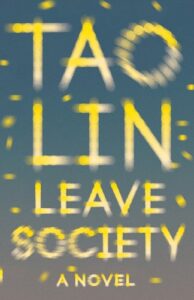
Tao Lin, Leave Society
Tao Lin’s Leave Society left a real mark on me. Sometimes you find a novel that opens up an entirely new kind of space for itself, and a radically different space for its reader to inhabit. I’ve always felt lost between generations, but this book makes me think I actually have one of my own—and Lin is its voice.
–David Boyd, co-translator of All the Lovers in the Night, by Mieko Kawakami

Jessica Au, Cold Enough for Snow
I was enchanted by Cold Enough for Snow by Jessica Au. The narrator, an Australian woman, is visiting Japan with her mother, who lives in Hong Kong. Perhaps it exacerbated a longing for Japan, which had until recently been closed to non-residents since 2020, but more so it was the interiority of the narrator’s voice, which beautifully captured the contemplative mood that can descend when traveling abroad, with or without a companion. The quiet descriptions of the relationship between mother and daughter and their attempts for connection were quite moving.
–Allison Markin Powell, co-translator of Lady Joker by Kaoru Takamura
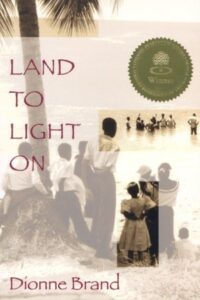
Dionne Brand, Land to Light On
I was searching for narratives about lines, ones that might define the architectures of oppression around us. I picked up Dionne Brand’s Land to Light On (1997) on a whim only to find pieces of myself scattered across pages that insist on excavating fractures of a people, and their place.
Grounded in her intimacies she crafts a cartography of pain that embraces my familiar, “his whole head soaked in that teardrop off the coast of India.” Borders are made irrelevant as she pulls our struggles closer together, placing us firmly inside a collective of displaced souls. The ones who have to “sweep this land up around your feet and point to the signs, pleat whole histories with pins in your mouth and guess at the fall of words.” A rare collection that deftly mingles suffering and resistance in the everyday, the lines of this book have shaped my political imagination.
–Nimmi Gowrinathan, author of Radicalizing Her: Why Women Choose Violence
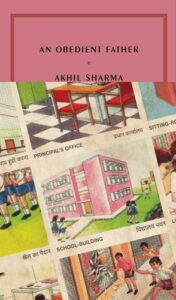
Akhil Sharma, An Obedient Father
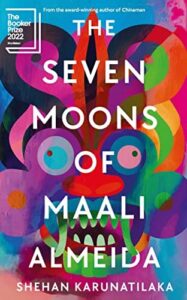
Shehan Karunatikla, The Seven Moons of Maali Almeida
As I grow older, I find myself becoming an inveterate rereader. Off the top of my head, for instance, I must have read Coetzee’s Waiting for the Barbarians every year since the turn of the century—it’s set in a world at once so distant and so familiar. During the Covid Era, in fact, I considered reorganizing my library between Books I’ve Read Once, Books I Haven’t Read Even Once, and Books I Reread All the Time.
In this proprietary taxonomy, I would also have to make space for Books I’ve Started: this year, I picked up a rich biography of Rudyard Kipling by Charles Allen, the prolific chronicler of colonial South Asia; Bill Bryson’s Shakespeare—Bryson can write about anything and make it great goddamn fun; and the H.A.R. Gibb’s translation of Ibn Butata’s fantastic Travels in Asia and Africa—all incidentally excavated from Old Books, the bookshop I frequent most in Karachi.
In a possibly unprecedented turn of events in the annals of literary history, the two novels I plan on rereading next have dramatically changed since I last picked them up. Akhil Sharma’s An Obedient Father was published in 2000 to much acclaim—in the Covid Era, he sat down and wrote the thing again. It was republished earlier in the year by McNally with a new beginning and end. How do you like that?
Then there is case of Shehan Karunatikla, a fellow DSC Prize-winner who spent as long as on his sophomore effort as I did—a decade altogether. But his opus, Chats with the Dead, dropped in the dead of Covid, and consequently, seemed dead in the water. When he rewrote it for a foreign edition, however, retitling it The Seven Moons of Maali Almeida, it won the Booker!
Reread, rewrite, repeat—the rewards are manifold.
–H.M. Naqvi author of The Selected Works of Abdullah the Cossack

Joshua Whitehead, Making Love With the Land
When I read Joshua Whitehead’s Jonny Appleseed, I knew I’d be following his work closely—his writing opens up new pathways of thought for me about how to inhabit this world. His latest book, a collection of essays called Making Love With the Land came out in November, and is a brilliant, deeply personal work of eco-erotic thought that looks at Indigenity, land, language, body, mental health, and more.
–Saskia Vogel, writer and translator of Strega: A Novel, by Johanne Lykke Holm
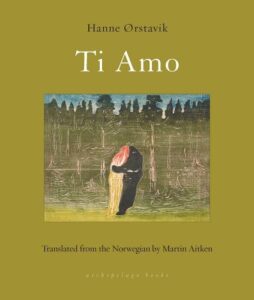
Hanne Hanne Ørstavik, trans. Martin Aitken, Ti Amo
I’ve been an Ørstavik superfan since reading her haunting novel Love a few years ago, and now I devour her books the moment they’re translated from Norwegian by the deeply gifted Martin Aitken for Archipelago Books. Ti Amo is a bracing anticipatory eulogy from an unnamed wife, a bereft woman sounding the depths of her love for her husband (and others) in the last months of his life. This nimble, surprising, fearless novel renewed me.
–Claire Vaye Watkins, author of I Love You But I’ve Chosen Darkness
__________________________________

The preceding is from the Freeman’s channel at Literary Hub, which features excerpts from the print editions of Freeman’s, along with supplementary writing from contributors past, present and future. Contributors: Leila Aboulela, Sulaiman Addonia, Julia Alvarez, Kali Fajardo-Anstine, Kerri Arsenault, Linnea Axelsson, Elizabeth Ayre, Diego Baez, Catherine Barnette, Chiara Barzini, Rick Bass, Lana Bastasic, Sam Bett, Joshua Bennett, David Boyd, Alexander Chee, Sandra Cisernos, Jaime Cortez, Jennifer Croft, Stuart Dybek, Geoff Dyer, Mariana Enriquez, Christy NaMee Eriksen, Athena Farrokzhad, Camonghne Felix, Aminatta Forna, Matthew Frank, Helen Garner, Ginny Tapley Takemori, Reyna Grande, Lauren Groff, Tess Gunty, Xiaolu Guo, A. Kendra Greene, Rawi Hage, Johan Harstad, Celia Hawkeworth, Juan Felipe Herrera, Kyle Dillon Herz, Ishion Hutchinson, Tania James, Cynan Jones, Mieko Kawakami, David Kirby, Rachel Kushner, Deborah Landau, Sasha taqwšəblu LaPointe, Robin Coste Lewis, Yiyun Li, Valeria Luiselli, Lauren Markham, Colum McCann, Semezdin Mehmedinovic, Daniel Mendelsohn, Maaza Mengiste, Claire Messud, Nadifa Mohamed, Honor Moore, Valzhyna Mort, Sayaka Murata, H.M. Naqvi, Kanako Nishi, Pola Oloixorac, Heather O’Neill, Tommy Orange, Allison Markin Powell, Emily Raboteau, Yasmine El Rashidi, Amanda Rea, Matt Reeck, Josephine Rowe, Anuradha Roy, Sunjeev Sahota, Michael Salu, David Searcy, Solmaz Sharif, Adania Shibli, Shanteka Sigers, Helen Simpson, Danez Smith, Matt Sumell, Arthur Sze, Jeremy Tiang, Héctor Tobar, Annie Tucker, Lily Tuck, Oscar Villalon, A. Yi, An Yu



